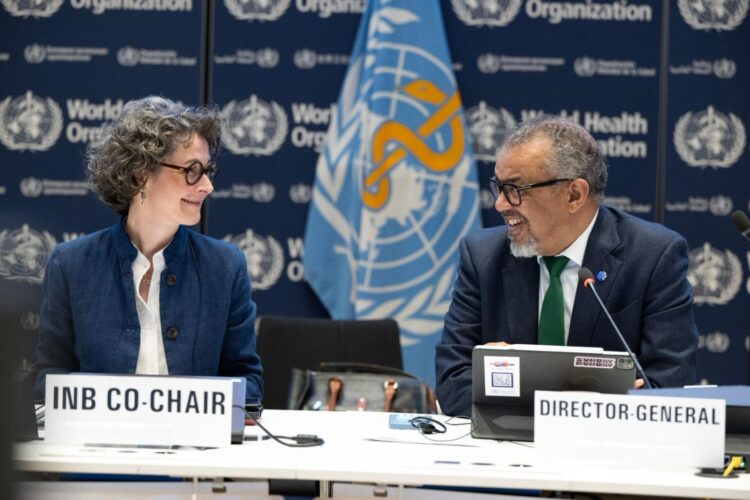HEALTH
WHO Member States have reached a significant milestone in global health security by finalizing a draft pandemic agreement after more than three years of negotiations. The proposal, which will be presented at the upcoming World Health Assembly in May, aims to enhance international collaboration in preventing, preparing for, and responding to future pandemics
In December 2021, at the height of the COVID-19 pandemic, WHO Member States established the Intergovernmental Negotiating Body (INB) to draft and negotiate a convention, agreement or other international instrument, under the WHO Constitution, to strengthen pandemic prevention, preparedness and response.
The agreement outlines several key measures, including the establishment of a pathogen access and benefit-sharing system, the adoption of a One Health approach to pandemic prevention, and the development of geographically diverse research and development capacities. It also emphasizes technology transfer, ensuring that knowledge, skills, and expertise are shared to facilitate the production of pandemic-related health products
Additionally, the proposal seeks to mobilize a skilled and multidisciplinary health emergency workforce, set up a coordinating financial mechanism, and strengthen health system resilience. A global supply chain and logistics network is also part of the framework to ensure efficient distribution of medical resources during crises
Importantly, the agreement reaffirms national sovereignty, stating that WHO will not have the authority to impose health measures such as lockdowns, vaccination mandates, or travel restrictions. Instead, countries will retain full control over their public health policies while benefiting from enhanced global cooperation.
WHO Director-General Dr. Tedros Adhanom Ghebreyesus hailed the agreement as a historic achievement, emphasizing that it demonstrates the power of multilateralism in addressing shared global threats
The proposal now awaits formal consideration and potential adoption at the World Health Assembly in May.
This landmark agreement marks a crucial step toward a more coordinated and equitable global response to future pandemics. If adopted, it will serve as a foundation for strengthening health security worldwide.








































